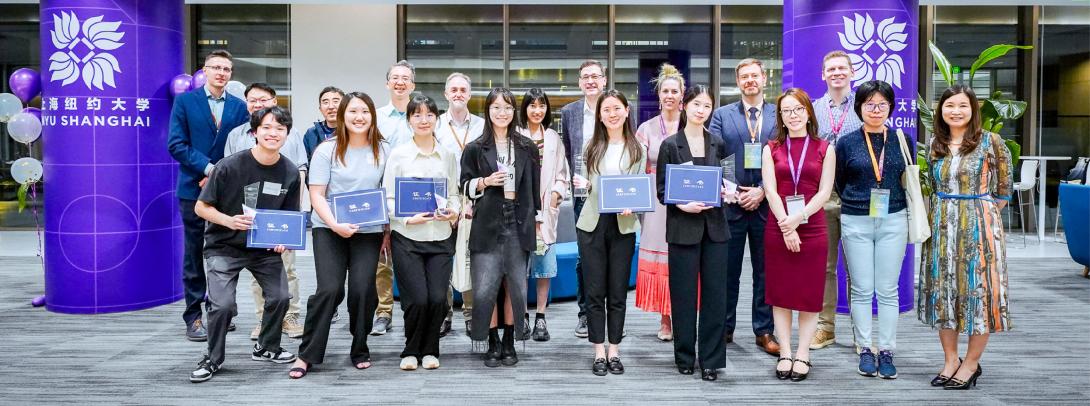The Spring 2024 Undergraduate Research Symposium, hosted at NYU Shanghai on May 10th, gave students a chance to share their own research. Students presented their work in two categories, Humanities & Social Science and STEM. Their projects covered a variety of topics, from political polarization to AI.
The semi-annual event highlights the emphasis NYU Shanghai places on supporting student research and student-faculty research collaboration. Speaking at the event, Interim Dean of Computer Science, Data Science, and Engineering Nasir Memon addressed the students as he spoke about the importance of doing research. “Research is not always about the destination,” he said. “It's about the journey.”
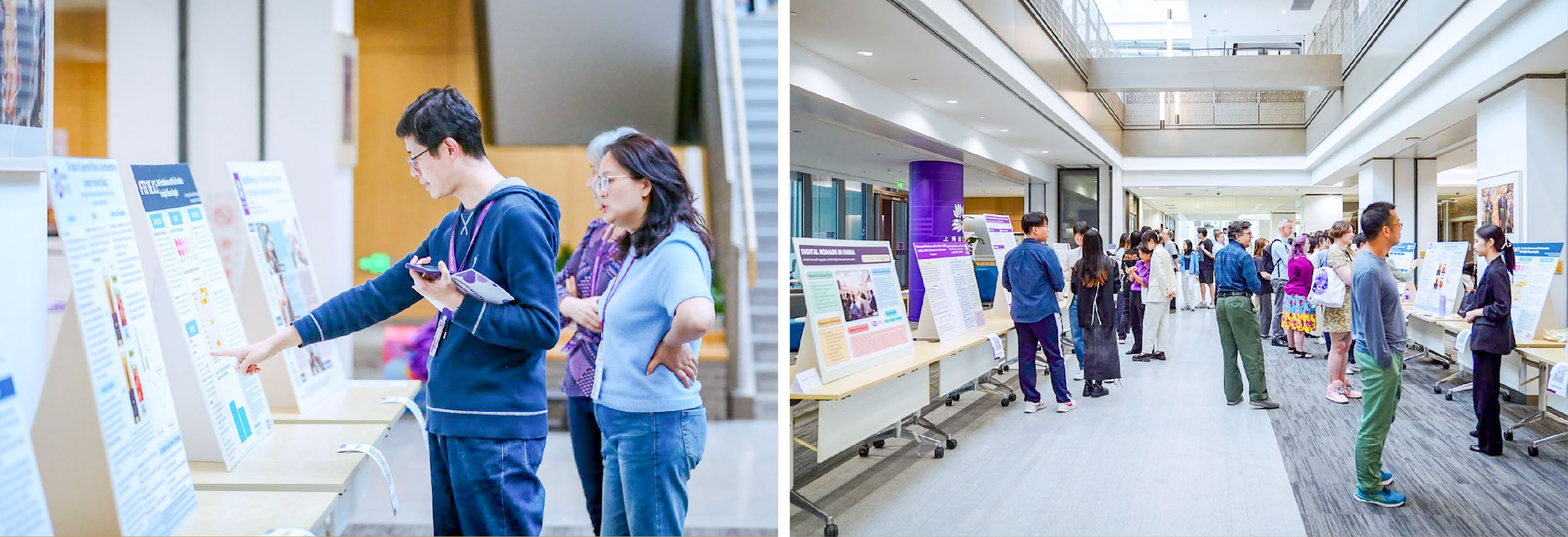
Dean of Arts and Sciences David Atwill, who introduced the humanities and social science presentations, also spoke about the role of student research at NYU Shanghai. “Being at a university is all about the production of knowledge,” he said. “The students are what makes this university special; the research they are presenting is what we are all here for.”
The attendees were, as always, an enthusiastic audience for the students’ research presentations. Assistant Professor of Sociology Miao Jia said she attends every year and always enjoys hearing students introduce their individual projects. “I found that this symposium is not just a platform for our students to showcase their individual achievements, but also it is a chance to inspire others, including me,” she said. “I believe that the projects that the students presented here have inspired future explorations, spark curiosity, and help foster research culture at NYU Shanghai.”
Humanities & Social Science A
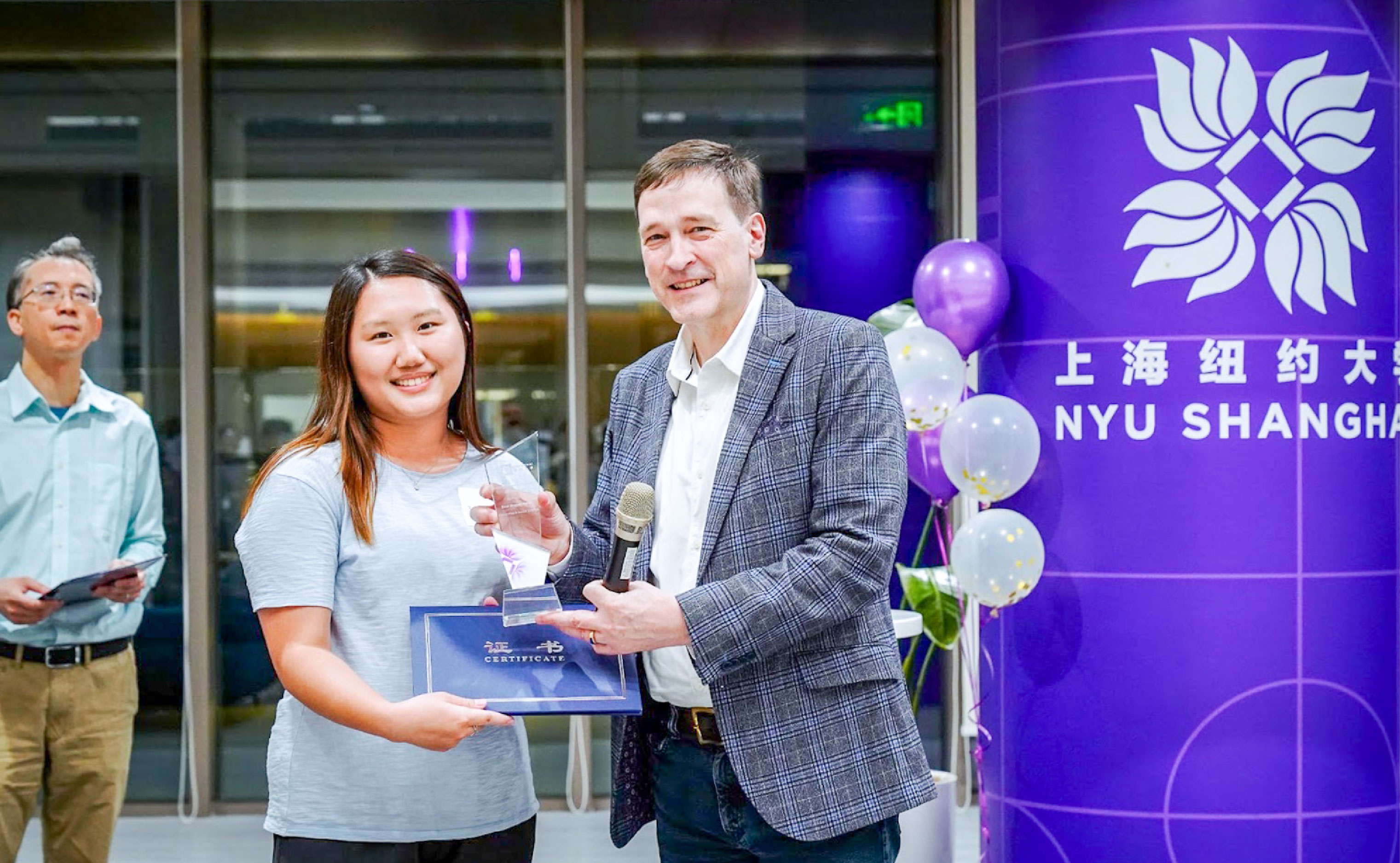
Best Presentation
The Relationship Between Social Media & Political Polarization in the United States
Researcher: Helen Zhu ’24
Faculty Mentor: Tyler Haupert
Project Abstract:
Political polarization is a key topic that has been and is still being studied within United States politics. In recent years, there has been a rise in political polarization, and social media usage has steadily increased. This paper will examine data collected from a survey of 609 respondents in the United States, where respondents answered questions regarding their social media usage, media trust, and attitudes towards the other political party. The project utilizes the survey results, looking at statistical significance to determine to what extent social media affects polarization.
What was the most challenging aspect of your research?
I chose my topic since I had mainly taken classes in American Politics during my time at NYU. Since the project was for my capstone, picking that topic made the most sense. The most challenging part of the process was designing the research, specifically the survey questions. It was challenging to think of what questions to ask respondents and how to ask them. The questions had to be able to measure the dependent variable which was hard when the dependent variable of polarization is not something that is easy to measure. I advise other student researchers to definitely pick a topic you like since you’ll be working on the research for a while.
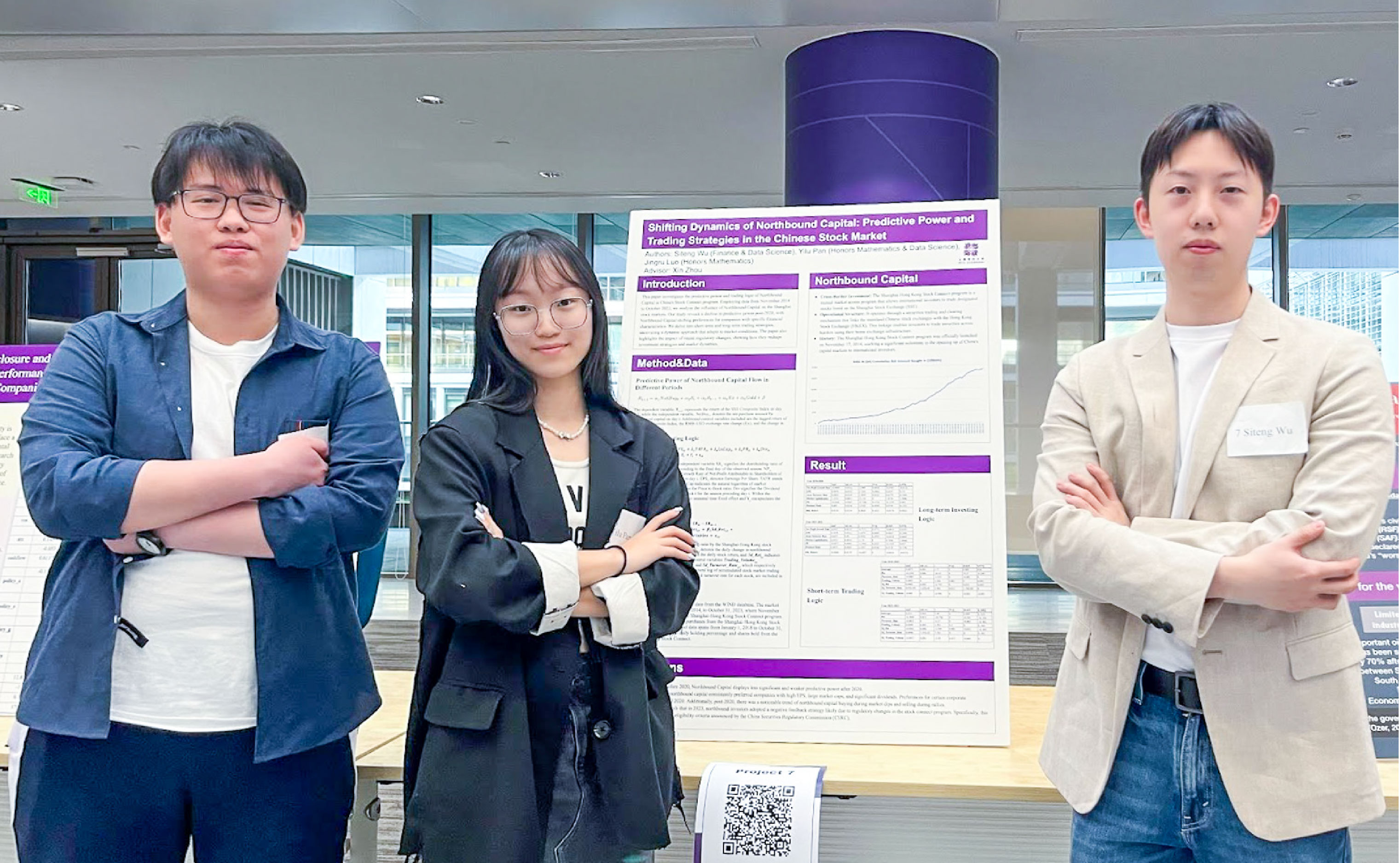
Best Research Project
Shifting Dynamics of Northbound Capital: Predictive Power and Trading Strategies in the Chinese Stock Market
Researchers: Luo Jingru ’25, Wu Siteng ’24, Pan Yilu ’24
Faculty Mentor: Zhou Xin
Project Abstract:
This paper investigates the predictive power and trading logic of Northbound Capital in China's Stock Connect program. Employing data from November 2014 to October 2023, we analyze the influence of Northbound Capital on the Shanghai stock markets. Our study reveals a decline in predictive power post-2020, with Northbound Capital shifting preferences for companies with specific financial characteristics. We delve into short-term and long-term trading strategies of northbound capital, uncovering a dynamic approach that adapts to market conditions. The paper also highlights the impact of recent regulatory changes, showing how they reshape investment strategies and market dynamics.
Why did you choose your topic?
We chose this topic because the northbound capital was in hot debate. Many people blamed the outflow of northbound capital for causing the downturn of the stock market. Many investors believe the northbound capital can predict the future returns of stocks and regulators were discussing curtailing real-time stock connect data. We were curious about this phenomenon and thus decided to research in the northbound capital.
What was it like working with your mentor?
The research is under the Volatility Institute at NYU Shanghai research assistant program and it is a one year program. Our mentor is Professor Zhou Xin, who is also the executive director of VINS. We met weekly to discuss the progress throughout the academic year. Professor Zhou offered a lot of insight and support to our research. We prepared a research report and powerpoint slides each week. During the meeting, we presented our weekly progress to Professor Zhou and other teams who are also under the VINS research assistant program. So each week it was like a small research symposium for us. The regular meeting and discussion helped us maintain a good pace towards the final working paper and the symposium.
What did you learn from this research and presentation experience?
Wu Siteng: I learned how to work with teammates from different backgrounds. I’m majoring in finance and data science, while my other team members are all about honors math. There were times when I had to break down financial concepts for them, and they helped me understand the math side of things. It was a great experience because we got to learn from each other and combine our strengths to make our project better.
Humanities & Social Science B
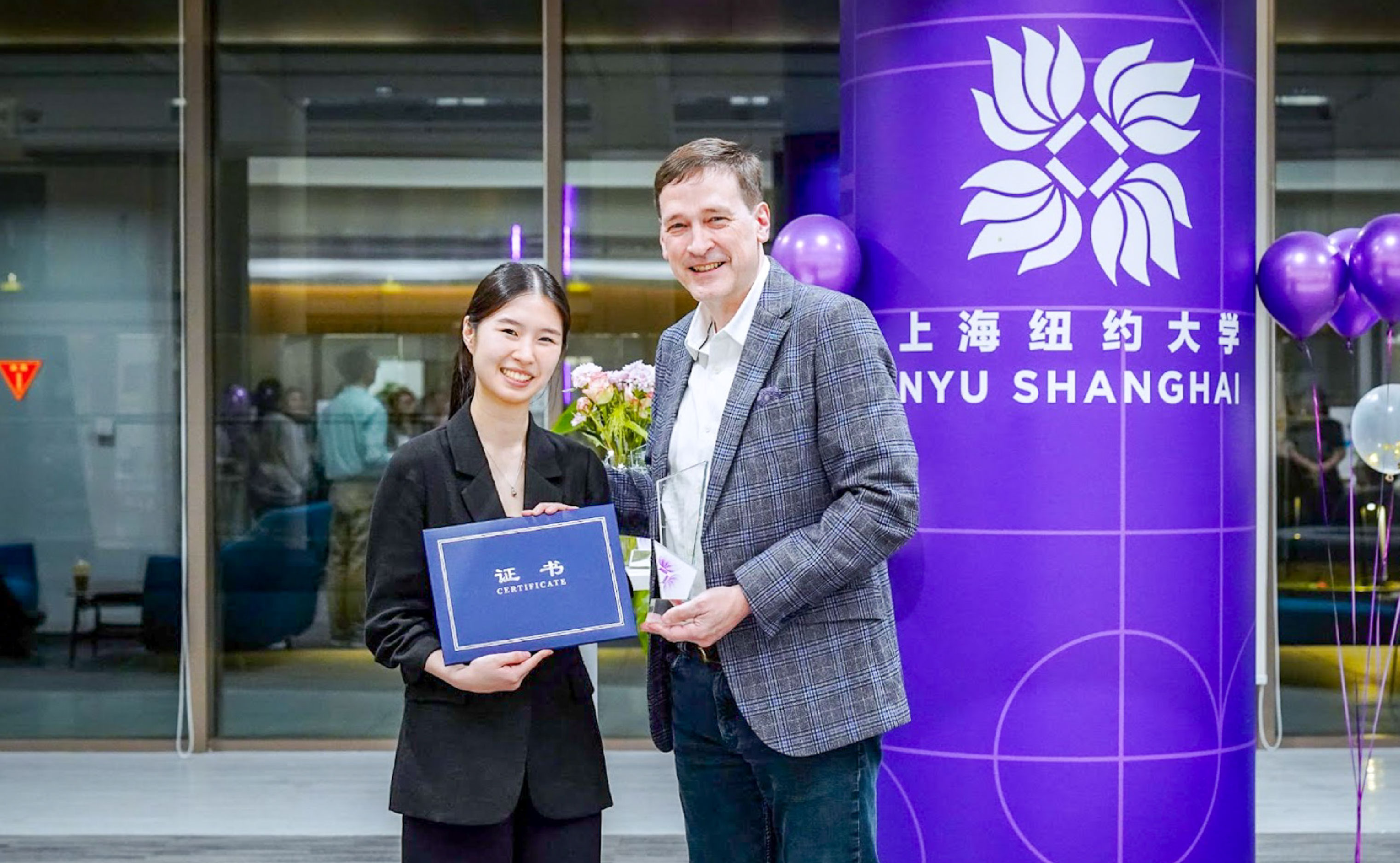
Best Presentation
After the Act: Post-Sex Behaviors and Their Correlates in Straight Chinese Couples
Researcher: Julie Yang ’24
Faculty Mentor: Pekka Santtila
Project Abstract:
The present study aimed to fill a gap in research by investigating how after-sex behaviors impact couples in China. As part of a randomized controlled trial for sensate focus intervention, forty-two Chinese heterosexual couples completed survey questions before and after the intervention, reporting on after-sex behavior, relationship satisfaction, sexual satisfaction, intimacy level, and sexual dysfunction. The results showed that less negative after-sex behaviors were associated with increased levels of relationship satisfaction and sexual functioning in women, while more negative after-sex behaviors were associated with increased levels of relationship satisfaction and sexual functioning in men. For both genders, less negative after-sex behaviors were associated with higher intimacy. The results also showed that the group who partook in the sensate focus intervention reported fewer negative after-sex behaviors compared to the control.
Why did you choose your topic?
Sex research often focuses on what happens during sex, but what happens immediately after is often overlooked. Additionally, most research on sex is done in a Western context, so by conducting this study among Chinese couples, we were able to fill a gap in the existing research.
What was it like working with your mentor?
Pekka is the most supportive mentor I could’ve asked for. I took his Psychology of Human Sexuality course in Spring 2023, and that's when my interest in sex research began to blossom. His lectures are thought-provoking, and he excels at fostering discussions and encouraging students to think critically about the topics at hand. On top of that, he is exceptionally intelligent and a very kindhearted person. Despite working on our project entirely remotely, he consistently showed his unwavering support for me. He is a true inspiration, and I am immensely grateful to have had the opportunity to work with him.
What did you learn from this research and presentation experience?
Taking the project one step at a time and celebrating those mini accomplishments is crucial. This research was part of my senior capstone, which lasted for two semesters. It was also the first time I've undertaken a research project of this scale. Though the process felt never-ending at times, celebrating each milestone made along the way was very important. For the presentation, I approached it like a musical composition, notating my words as if they were music. I wrote my speech down, highlighting words to accent and adding slashes between words to rest at. Incorporating movement into the speech also helped engage the audience. And as they say in music, practice makes progress!
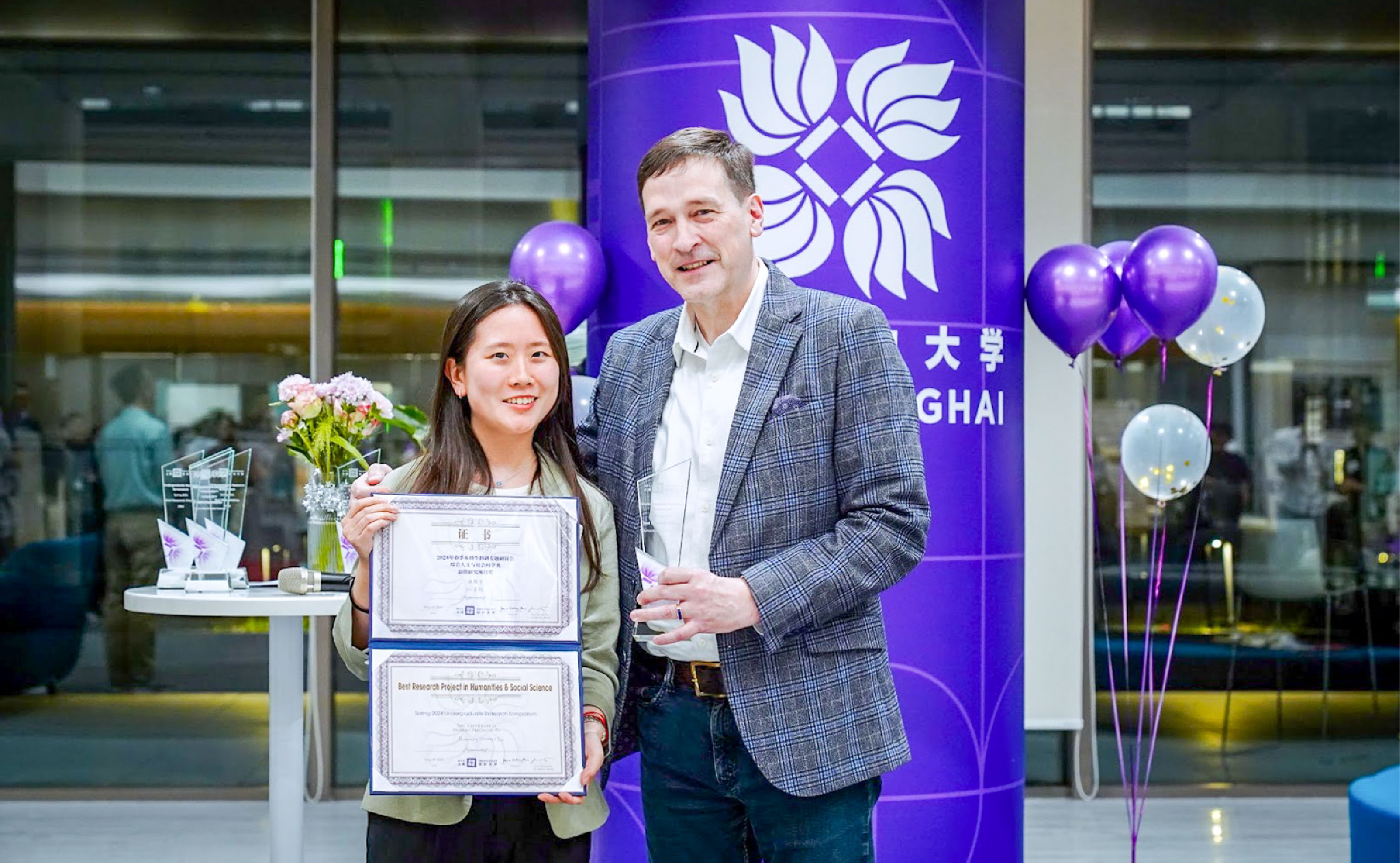
Best Research Project
The Impact of AI-generated Photos in Advertisements on Consumer Decision Making
Researcher: Hattey Sun Ruoming ’24
Faculty Mentor: Brian Hall
Project Abstract:
As AI (Artificial Intelligence) has been a popular tool among the marketing industry for generating attractive photos in advertisements to capture consumers’ attention, this research wants to understand how AI-generated photos in advertisements influence consumer psychology from the aspect of emotion-based decision making. With ChatGPT to create photos, the results from an online experiment showed that, compared to real photos, AI-generated photos didn’t significantly impact people’s perceived quality, emotion, attitude. The effects of perceived quality, attitude and emotion on purchase intention for two product types were confirmed with the existence of AI-generated photo serving as a moderating variable.
My general interest in consumer behavior and decision-making science, combined with my daily experience of encountering advertisements on social media, inspired me to explore this particular question: How do AI-generated fake photos attract consumers, even when these individuals are aware that the images are not real? My research focus is an emerging field. I got more familiar with the directions and methods used by current cutting-edge research. Moreover, I learned how to present my work in an attractive way through language that is easy for the general public through my presentation experience.
What was it like working with your mentor?
During my brainstorming for this research idea, Professor Brian Hall provided many invaluable insights, helping me develop such an intriguing and significant topic. He also taught me extensively about data analysis, enhancing my understanding of how to select the most appropriate analysis model for my research. Furthermore, Professor Hall offered helpful guidance for my future research journey.
Did you face any unexpected challenges?
The biggest challenge is how to create the research design for my research question because it’s an innovative area and no one has done similar work previously. Through thoroughly reviewing existing literature in consumer psychology and exploring the capabilities of generative AI, I was finally able to design a questionnaire that both satisfied the requirements for a controlled experiment but also successfully tested the variables that I aimed to analyze.
STEM
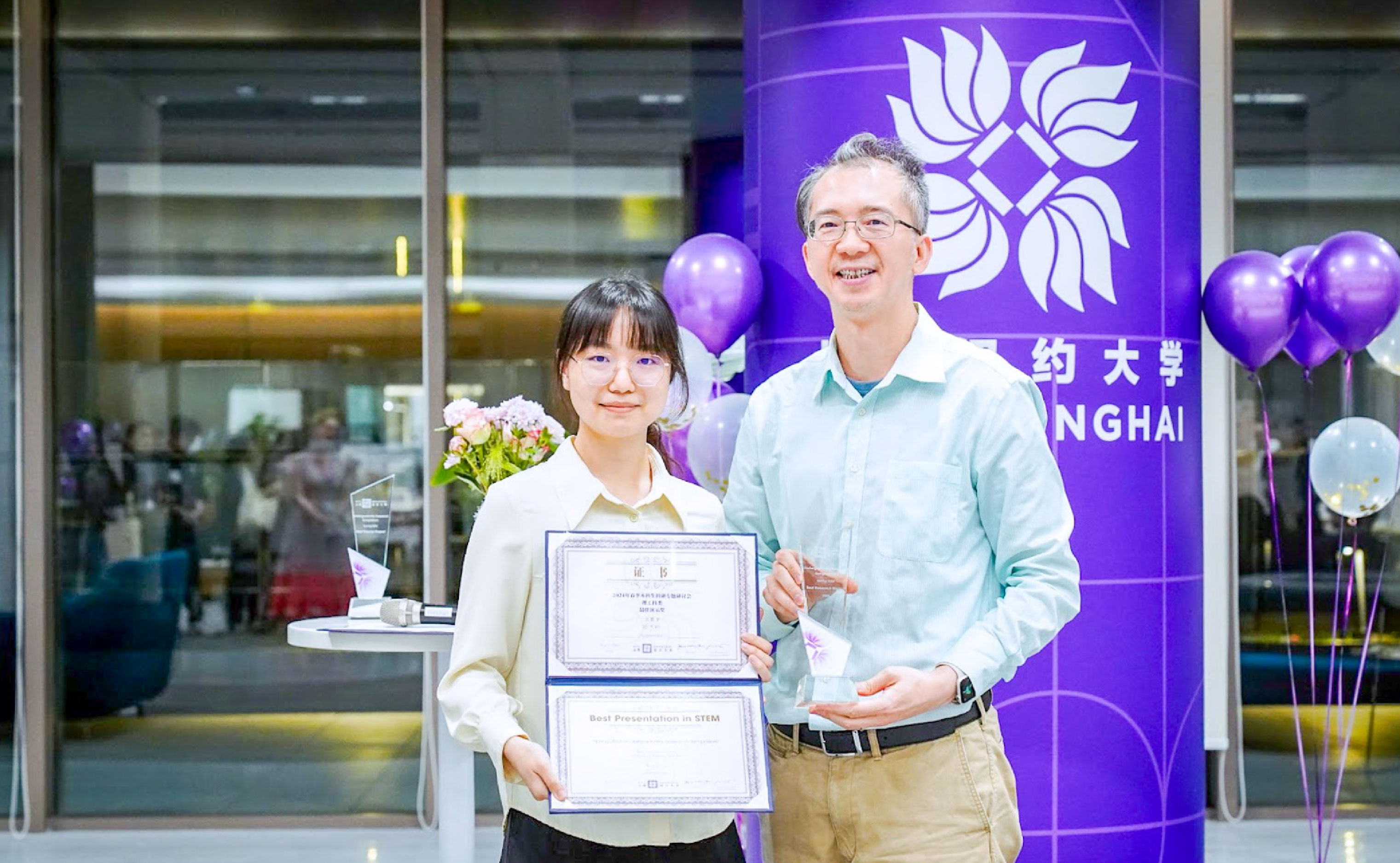
Best Presentation
Exploring the Impact of Brief Naps on Emotional Reactivity to Emotionally Valenced Words
Researcher: Annie Lu ’24
Faculty Mentor: Tian Xing
Project Abstract:
This pilot study investigates the influence of short naps, particularly focusing on sleep spindles during non-rapid-eye-movement stage 2 (N2) sleep, on emotional reactivity during emotion association and imagination tasks. Current research primarily explores the role of sleep spindles in memory forming, intelligence, and learning, less talking about its impact on emotions. Hypothesizing that sleep spindles during N2 sleep play a crucial role in emotional regulation, we aim to analyze emotional reactivity using EEG measures and emotionally-valenced word stimuli. This study holds significance in understanding emotional regulation, potentially contributing to enhancing cognitive functioning and emotional well-being across various domains.
What was it like working with your mentor?
In general, I have a great deal of independence in my work. Although my research interests do not closely align with Professor Tian’s, he is very supportive, assisting with experimental design and providing access to necessary facilities. I also communicated with Lu Yunan, a PhD student in Professor Tian’s lab, who helped me refine the procedures, structure task code, and provide sample code for data preprocessing.
What did you learn from this research and presentation experience?
Personal experiences and daily observations of sleep issues and emotional problems drive my research interests. I am so fascinated by the potentially powerful role of sleep in modulating human behaviors, especially how it alters emotions and well-being. I think I should have started with a simpler approach. I used a challenging emotion induction method and investigated the role of non-rapid eye movement (NREM) naps in emotional reactivity, both of which are less studied compared to other methods like emotion induction using facial expressions or film clips, or the study of rapid eye movement (REM) sleep. Although this is a pilot study, focusing on one variable at a time might increase the likelihood of getting my desired results. However, I also understand that no significance is also an important result, and I should present it as it is. The null results are crucial for my future studies, as they help me identify the limitations of the current method or encourage me to explore why it did not work.
Did you face any unexpected challenges?
Coding was challenging for me due to my limited previous experience in coding and data. However, this difficulty was expected, and I was mentally prepared to handle it. I learned coding and analysis by addressing specific needs with my data. Whenever I needed a particular function, I would search for it and learn how to use it.
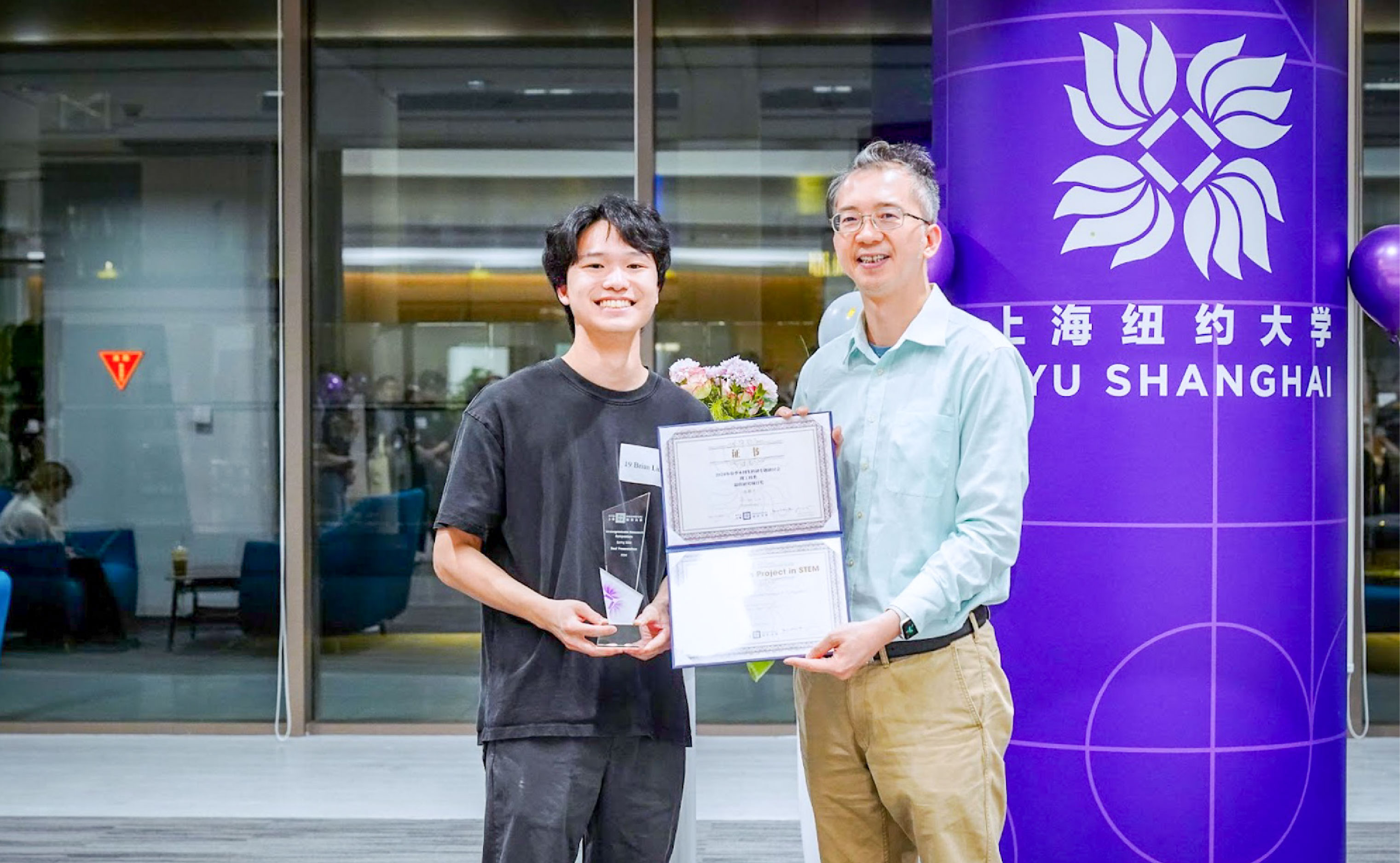
Best Research Project
Advancing Quantum Dynamics Simulations: A Comparative Study of Dynamical Methods for the Spin-Boson Model
Researcher: Brian Liu ‘24
Faculty Mentor: Sun Xiang
Project Abstract:
This thesis investigates various computational methods for simulating population dynamics within the spin-boson model, focusing on numerically exact and approximate methods. Through an extensive literature review and simulations, the study aims to evaluate the accuracy, efficiency, and reliability of these methods. Findings suggest that numerically exact methods give more precise results, but they are more computationally demanding. Approximate methods reduce the computational load, but give less accurate results. This study is important as it allows for a better understanding of quantum dynamics in the spin-boson model and lays the foundation for future research to optimize such computational strategies.
Did you face any unexpected challenges? If so, how did you overcome them?
The only challenge that I faced during this research study was the difficulty of finding previous literature on the many approximate and numerically exact dynamical methods. Luckily, my mentor, Professor Xiang Sun, was able to help guide me through this process and gave me some previous literature that he also used himself. Working with him has been incredibly rewarding and educational. His expertise and constructive feedback were significant in shaping the quality of my research.
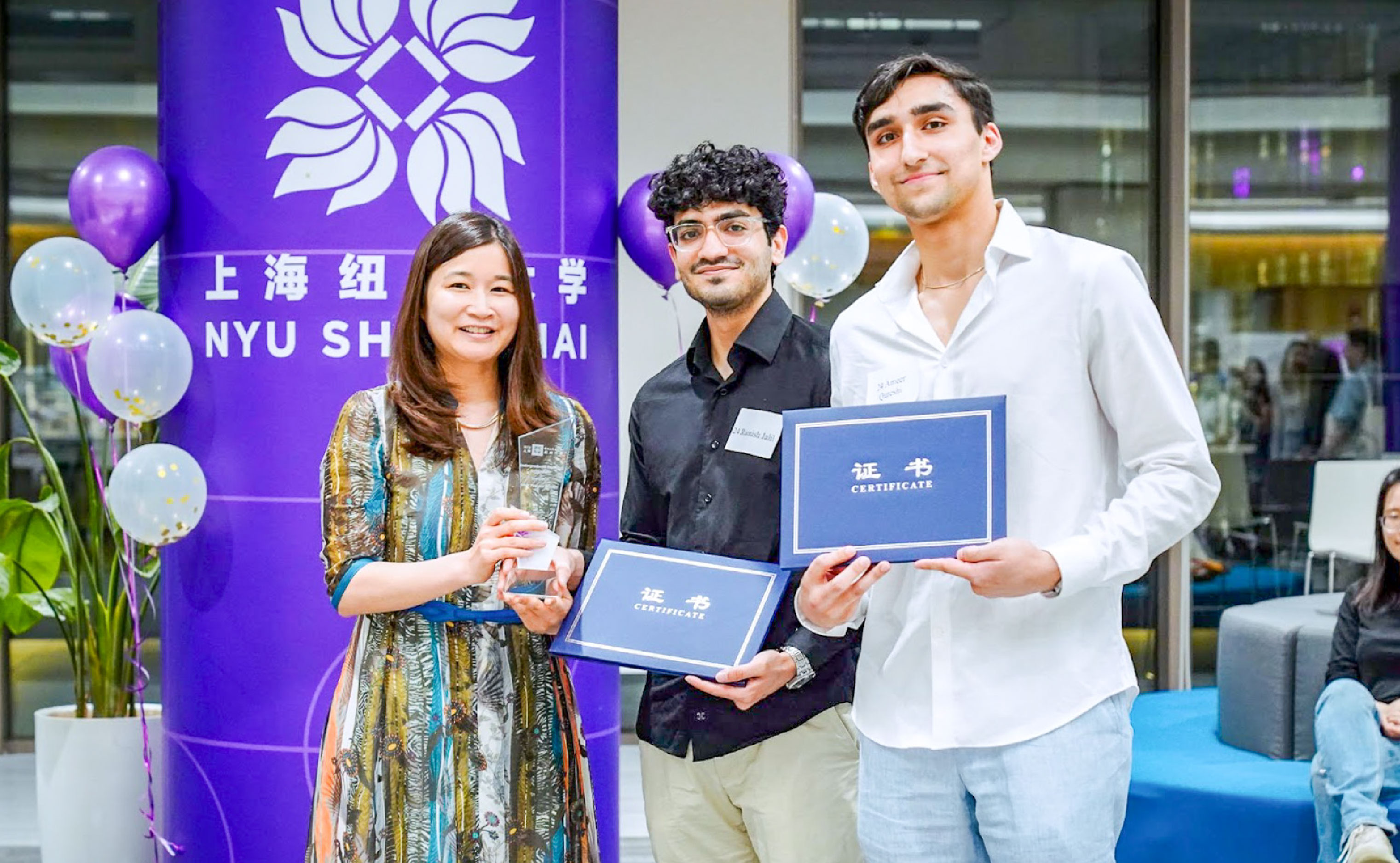
Most Popular Project
LLMBiasWatch: A Framework for Prompt-Based Bias Detection in Language Model Outputs
Researchers: Ameer Qureshi ’26, Ramish Jalil ’26
Faculty Mentor: Rachid Rebiha
Project Abstract:
The use of generative artificial intelligence has become increasingly popular as technology progresses and experts are showing that 92% of the data found on the internet will be from generative A.I in 10 years from now. Starting from a prompt Generative A.I. is able to generate automatically new contents. Unfortunately, it tends to reinforce the bias that was first available on its data sets. We propose an automated prompting framework allowing us to quantify the biases found in the end-users output. Our framework allows us to compare the bias between LLM popular tools and methods to quantify bias on polarized topics (e.g., profession, gender, race, religion, and political ideology).


